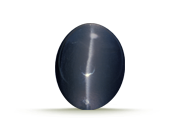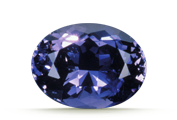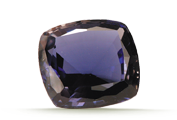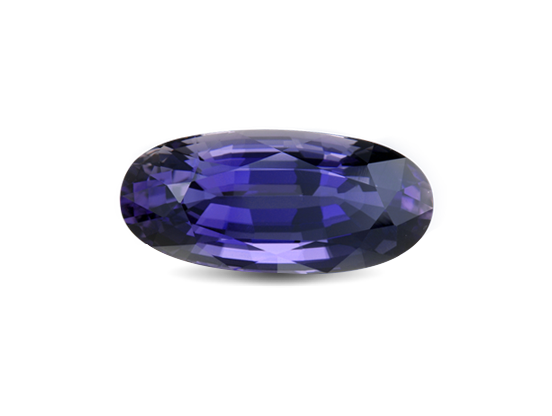Iolite According to legend, Vikings used iolite slices to reduce glare when checking the sun’s position.
ABOUT IOLITE
In legends, ancient Viking navigators used thin slices of iolite as filters to help locate the sun on cloudy days. Whether or not the tales are true, iolite (mineralogists call it cordierite) can be fashioned into beautiful gems. Strongly pleochroic iolite has been incorrectly called “water sapphire,” as it can display a blue to violet hue in one direction and pale yellow to colorless in another.
BIRTHSTONES & ANNIVERSARIES
Iolite is the gemstone for the twenty-first wedding anniversary.
QUALITY FACTORS
The following factors combine to determine an value.
COLOR

Iolite’s most desirable colors are in the violetish blue to fine blue range.
CLARITY

Properly oriented inclusions can cause cat’s-eyes and aventuresence.
CUT

Iolite is most often faceted, as this cutting style serves to highlight its fine transparency.
CARAT WEIGHT

Fine-quality faceted iolites over five carats are relatively rare in the market.
IOS
Name is from the Greek word ios, meaning violet.
PLEOCHROIC
When you turn iolite, you’ll see three distinct colors in three crystal directions.
AU NATURAL
Iolite is not typically treated. This is an attractive selling point for some consumers.
FACTS
- Mineral: Iolite (Cordierite)
- Chemical composition: Mg2Al4Si5O18
- Color: Violetish blue (pleochroic colorless-yellow)
- Refractive index: 1.542 – 1.551
- Birefringence: +0.045, -0.011
- Specific gravity: 2.61
- Mohs hardness: 7.0 – 7.5




